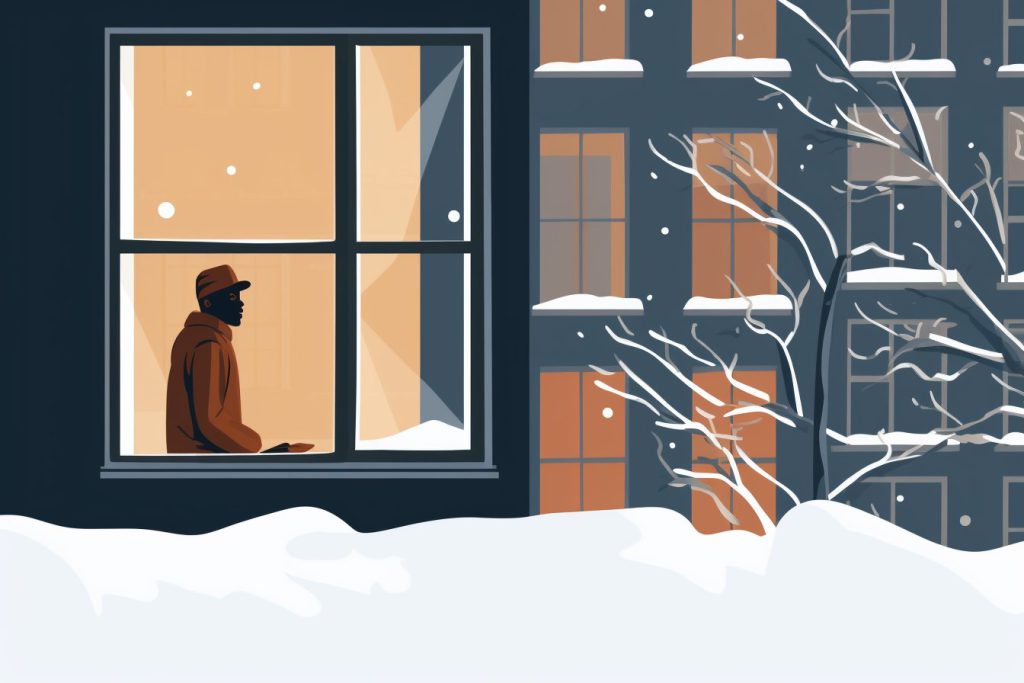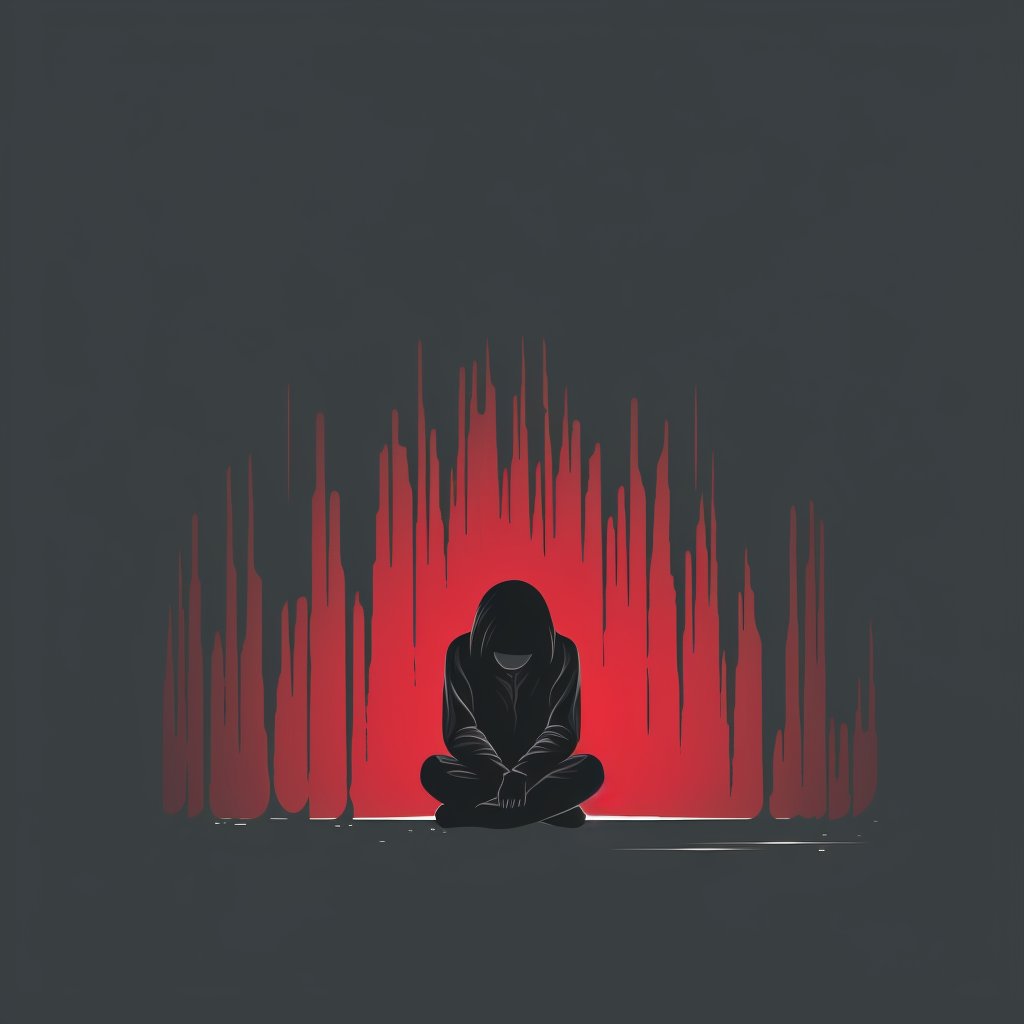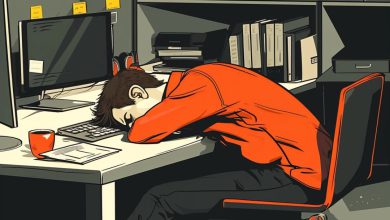New Year, New Blues? Manage New Year’s Depression!

🎧 Listen to this Article 🎧
As confetti rains down and cheers erupt at midnight, a curious shadow lurks behind the celebratory facade. For many, the dawn of a new year doesn’t usher in joy, but instead casts a pall of sadness and disappointment. This seemingly paradoxical phenomenon, known as “New Year’s depression,” is more than just a case of the January blues. It’s a complex tangle of unmet expectations, societal pressures, and the harsh realities of winter’s grip. In this article, we’ll peel back the layers of this often-overlooked sentiment, offering understanding, guidance, and tools to navigate the emotional complexities of a fresh start when it feels anything but fresh.
How It Feels to Be Depressed at New Year

Is new year’s depression a thing? While the confetti rains down and fireworks paint the sky, a curious shadow can lurk beneath the celebratory surface. For many, the dawn of a new year doesn’t usher in jubilant cheers, but instead brings a wave of unexpected sadness. New Year sadness is more than just a case of the Monday blues. It’s a complex tangle of unmet expectations, societal pressures, and the quiet thud of reality after the festive frenzy.
Imagine the champagne fizz failing to mask a lingering sorrow, the celebratory mood feeling discordant with a heavy heart. This is the essence of New Year’s Eve depression, where the weight of reflection and the pressure of fresh starts can push joy aside, leaving a space for unexpected melancholy. It’s not about dreading the new year itself, but about the emotional dissonance that can arise amidst the revelry, a feeling of being out of sync with the expected cheer.
Being depressed on New Year’s Eve isn’t uncommon. It’s a reminder that even amidst the outward glitter of celebrations, emotional complexities can linger. And that’s okay. Recognizing this phenomenon and understanding its nuances is the first step towards navigating it with compassion and self-care.
| Suggestion: January Depression | Why is January Depressing?
Symptoms:
New Year’s depression, sometimes called “post-holiday blues,” can manifest in various ways, affecting different people differently. Here are some common symptoms:
- Low mood and sadness
- Loss of motivation and interest
- Anxiety and irritability
- Loneliness and isolation
- Regret and disappointment
- Changes in sleep patterns
- Changes in appetite
- Physical aches and pains
- Negative self-talk
- Loss of purpose and meaning
- Increased substance use
| Related: Social Isolation in Depression
When New Year’s Day depression becomes severe, the consequences can ripple into different areas of life, impacting emotional, physical, and social well-being:
- The initial sadness can morph into severe depression, marked by intense hopelessness, despair, and loss of interest in anything.
- In extreme cases, intrusive thoughts about self-harm or suicidal ideation can emerge, posing a serious threat to safety.
- Anxiety can escalate, leading to frequent panic attacks and crippling fear that disrupts daily functioning.
- Detachment from emotions and one’s own body can occur as a coping mechanism, creating a sense of numbness and disconnection.
- Significant weight gain or loss due to unhealthy coping mechanisms like overeating or restrictive dieting.
- Neglect of responsibilities can lead to financial setbacks like job loss or overwhelming debt.
- The tendency to withdraw from social interactions deepens, amplifying feelings of loneliness and isolation.
Depression in older ones can be particularly overwhelming, especially during the New Year’s holidays.
Gain further insights in the following article:
Causes of New Year’s Day Depression

- Pressure of fresh starts: Unmet expectations and societal pressure to reinvent oneself can trigger anxiety and sadness.
- Emotional hangover: Depletion of energy and motivation after the festive season’s whirlwind.
- Introspection and reflection: Contemplating past losses or disappointments can dredge up difficult emotions.
- Seasonal factors: Shorter days and colder weather can exacerbate pre-existing mood disorders and sap energy.
- Unrealistic resolutions: Setting unattainable goals can lead to feelings of failure and discouragement.
- Social isolation: Loneliness and lack of support can amplify negative emotions during a time of reflection.
- Financial strain: Holiday spending and post-holiday financial pressures can cause stress and anxiety.
- Underlying mental health conditions: Existing depression or anxiety can be exacerbated by the emotional complexities of the new year.
- Past Memories and Loss: If the new year coincides with anniversaries of difficult events or the loss of loved ones, family gatherings can become a minefield of painful memories, especially for individuals struggling with grief.
- Missed Traditions and Memories: For individuals who traditionally celebrated with loved ones in the past, spending the new year alone can trigger feelings of nostalgia and sadness for lost traditions and connections.
- Societal Pressures and Expectations: Societal expectations surrounding romantic relationships and finding a partner can be particularly acute during the new year, leading to feelings of inadequacy and loneliness for individuals who are single.
| Discover: Depression and Motivation | Coping Strategies for Lack of Motivation
Feeling Sad on New Year’s Eve? Avoid These!

New Year’s eve depressing can be tough, but it’s important to be mindful of your emotional state and avoid certain things that might worsen your mood. Here’s what to steer clear of:
- Isolating yourself: While taking some time alone can be good, withdrawing completely from social interaction can amplify feelings of loneliness and sadness. Seek company from supportive friends, family, or even online communities.
- Ignoring your emotions: Bottling up your feelings can make them fester. Acknowledge your sadness and allow yourself to express it through writing, talking to a trusted person, or creative outlets.
- Overindulging in alcohol or drugs: While tempting as a coping mechanism, alcohol and drugs can worsen depression and anxiety in the long run. Seek healthier ways to manage your emotions.
- Comparing yourself to others: Social media and societal pressure can fuel envy and inadequacy. Remember, everyone’s journey is unique, and comparison is a thief of joy.
- Focusing on past failures: Dwelling on past mistakes can keep you stuck in the negative. Acknowledge your experiences, learn from them, and shift your focus towards the present and future possibilities.
| Related: Top 10 Self-Care Practices for Depression
How to Fight New Year’s Eve Depression

- Make a list of things you’re thankful for, big or small.
- Embrace the dawn, get some vitamin D, and clear your head.
- Curl up with a good book, movie, or furry friend.
- Write, paint, draw – express your emotions through art.
- Immerse yourself in calming landscapes for a mood boost.
- Stretch, dance, or practice light yoga to de-stress.
- Volunteer or perform a random act of kindness for joy.
- Drink plenty of water to flush out negativity and energize.
- Disconnect from screens and reconnect with yourself.
- Prioritize restful sleep for emotional recharge.
- Open curtains and let sunshine in.
- Fuel your body with nourishing foods for brainpower.
- Reach out to friends or family for support and understanding.
- Be kind to yourself, everyone stumbles sometimes.
- Don’t hesitate to reach out to a therapist or counselor.
Learn about…
HealWiser’s Last Piece of Advice
While the fireworks fade and resolutions whisper into existence, remember: New Year’s Day blues may brush you, but they don’t have to define you. Choose self-kindness, embrace small joys, and know that in the canvas of the year ahead, a vibrant future awaits. Happy year, with all its messy, beautiful possibilities.
Sharing your experience can provide valuable insights and emotional support. So…
…share your story with HealWiser and others in the comments section below this post.






